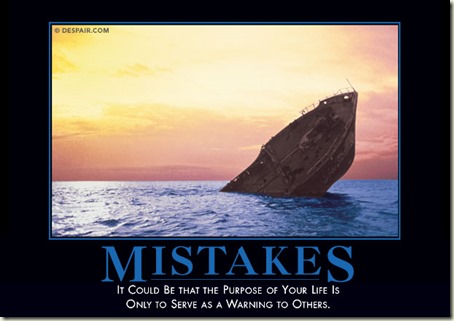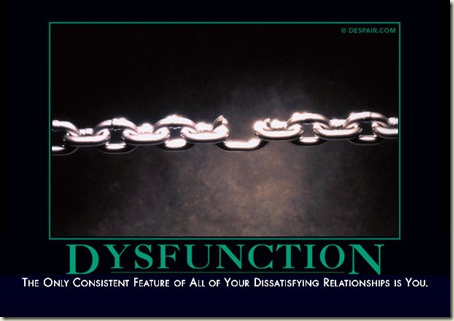Today my wife and I are celebrating our 30th Wedding Anniversary, which is the single-greatest and most-important adventure upon which I have embarked in my life. I remember when my wife and I were newly married and we would meet couples who had been married 30 years; I would think to myself, "Wow – that's such a long time." But now that I'm the one who has been married that long I think, "Wow – that sure went by fast."
But truth be told, I cannot take credit for the length of our union - I married someone who is an infinitely better person than myself. Seriously. Anyone who can put up with me for a mere afternoon is a miracle-worker, which probably elevates my wife to sainthood.
That being said, sometime around our 25th wedding anniversary I started getting questions from younger couples like, "What's your secret?" and "Why has your marriage lasted so long?" Let me be very clear - I am not an expert on marriage, and in general I am not a person who should be emulated; I am wholly aware of my many shortcomings as a human being, and I am overtly cognizant of my failures as a husband with regard to holding up my half of our relationship. (I always mean well, of course - but I am just as flawed as the next guy. Some days I simply forget to take out the garbage, or empty the dishwasher, or whatever. [Darn. I'm so ashamed.])
However, if I can't be a good example of a husband to anyone else, perhaps I can share a few of the things that I've learned from being a bad example. To quote the good people at Despair.com, perhaps my purpose in life is to serve as a warning to others:

With that in mind, here are some of the reasons why our marriage has endured, what has helped us over the years, and some of the lessons that I've learned the hard way.
I'd like to start things off by answering the question that I seem to get the most: "What is the secret to a long-lasting marriage?" Okay, if you're taking notes, you might want to write this down, because here it is:
Point #1 - Don't Get Divorced.
That's it. Period.
You could stop reading right now because you've already got the main takeaway from this blog. Now in case anyone thinks that I'm making light of this situation, I'm actually being perfectly honest. If you decide that divorce is not an option, it affects every part of your partnership. In our journey together, my wife and I have gone through incredible peaks and valleys - surviving both good and bad times - and many of these situations would have ended other relationships. In the past 30 years we have gone through everything we mentioned in our vows; we have endured sickness, health, prosperity, poverty, joy, adversity, etc. In the end, facing these seasons together and surviving side-by-side to live another day as husband and wife has bonded us together in ways which resemble the closeness of combat veterans. Collective perseverance yields intimacy.
I understand that there are situations where divorce is the only option; for example, when your spouse walks out on you, or your spouse is abusive and refuses to get professional help. When I talk about refusing to get divorced, I am speaking to those of you who get up one day and decide that you don't want to be married, or you claim that your spouse "just doesn't understand you anymore." When these feelings happen, you have to work your way through them. It takes conscious effort, but you made a commitment and you should not quit simply because you are wondering whether the grass is greener on the other side of the fence. Walking out on your marriage because you're bored or you don't want to do the work is little more than cowardice.
To be honest, the fact that my wife and I are still together is a much greater testimony to my next topic:
Point #2 - Christ.
Yes, I know - invoking the name of Christ is considered "Politically Incorrect" these days, but it is a simple statement of fact that my wife's and my faith has helped us weather countless trials and tribulations. So I don't care if it's an unpopular to talk about Jesus, because faith works. Don't argue with success.
Over the years I have learned this next valuable lesson:
Point #3 - Fighting Is Not Worth It.
I have to be brutally honest about whether my wife and I ever fight, and I sincerely wish that I could say we never quarreled. But the truth is - we used to bicker. A lot. In the early years of our marriage we fought like cats and dogs. And on that note, the unfortunate reality of our situation at the time is inescapable: I was 19 years old when I married my high school sweetheart and best friend, who was only 18 years old at the time. We went from kids to couple overnight, but only in the legal sense - maturity didn't show up until many years later. (Perhaps it still hasn't. Hmm. Probably best not to digress on that point.)
I would love to say that my statement about how "fighting is not worth it" was due to some grandiose epiphany which I arrived at through years of soul-searching and mature contemplation of our relationship. But the truth is much simpler, my secret to avoiding arguments boils down to one single concept: laziness. Seriously, fighting took way too much effort, and we eventually learned that it was better not to fight. Here's what an argument looked like in our house - we would disagree about something, which would escalate into a maelstrom of heated and hurtful words thrown back and forth between us. Eventually we would reach some form of resolution, but once the dust settled from the actual argument, we had to endure days of coldness as the two of us figured out how best to rebuild all of the trust which we had destroyed during the argument. It dawned on both of us that it took a great deal of effort to work up the anger for an argument, and the emotional trauma that we experienced was exhausting after our disputes had ended. Once we had realized that valuable lesson, both of us learned to recognize when we were hurtling toward another squabble, and we'd agree to skip over the major conflict part. It sounds easy enough, but it took us years to figure that out.
Now please don't get me wrong, I am not suggesting that we never disagree, nor am I insinuating that we do not defend our opinions passionately when we hold opposing positions on important topics. The truth is - we still differ on any number of subjects, but we both realize that nothing is worth losing our marriage. Together we have endured destitute poverty, years of work-related separations, the births and deaths of several family members, and raising three children to adulthood.
Throughout all of our combined experiences, I have vividly retained the following critically-important fact:
Point #4 - Always Remember Why You Married Your Spouse.
My wife and I were friends for several years before we ventured out on our first date. In fact, by the the time it occurred to either of one of us that we should be more than friends, many of our friends already thought that we were dating and were rather sick of the subject. (They're probably still sick of the subject, but after 30 years I really don't care. :-P)
Kathleen is my best friend, and we still hold hands when we walk together in public - which is how life should be; she has been the predominant character in all of my experiences as an adult, and she has been a major part of my life for almost 35 years. My wife is truly my better half, so why would I gamble all of our collective memories and life experiences by failing to remember the simple fact that I am sharing my life with the most-important and most-loving person whom I have ever known? If I fail to keep these thoughts in mind, I risk destroying everything. And that would make me a pretty selfish jerk. (Feel free to quote that to my face if it ever looks like we're headed for trouble.)
Point #5 – Be Self-Critical.
Believe it or not, you are not the perfect spouse. The folks at Despair.com got it right when they published a demotivational poster which reads, "The only consistent feature of all of your dissatisfying relationships is you."

While they were just making a joke, it should be noted that there is a lot of truth to that statement. More often than not, you will find that the source of unhappiness in your relationship is your attitude and not some shortcoming on your spouse's part. Every once in a while you need to step back and take a good look at yourself before lecturing someone else about their behavior.
I should probably mention one last thing before bringing this blog to an end:
Point #6 - A Good Marriage Takes Work. A Great Marriage Takes More Work.
Somewhere around our seventh year of marriage I decided that I wasn't content to have a 'Good Marriage,' I wanted a 'Great Marriage.' Unfortunately, I had no clue as to how we should go about creating such a thing. With that in mind, I decided to read at least one book about marriage each year. Some of those books have been great, and others I've tried hard to forget. A few books I have re-read years later; this has usually been an amusing experience for me, because I often discover that some part of a book which I thought was silly and chose to ignore at the time was eventually learned the hard way. In any event, there are a lot of good books on marriage out there, and you may think that some won't apply to your situation, but you have to be willing to try.
Two books which have been life-changing for me have been The Five Love Languages and The Five Languages of Apology by Dr. Gary Chapman; these two books probably changed all of my relationships with everyone I know - spouse, kids, parents, extended family members, friends, coworkers, etc. There are lots of other great books which I have read, but those two are a good start.
In closing, I may not be the best role model for a husband, and I have made more than my fair share of mistakes. But I have learned a thing or two along my journey from the cradle to the grave. I take no pride by admitting that most of my life lessons have been learned the hard way, so you can consider my advice from two perspectives: if I have been an idiot from time to time throughout our marriage, perhaps my advice isn't worth anything. On the other hand, if I've made enough mistakes as a husband to finally realize several of the most-important things to remember in a relationship, perhaps you can learn from my errors.